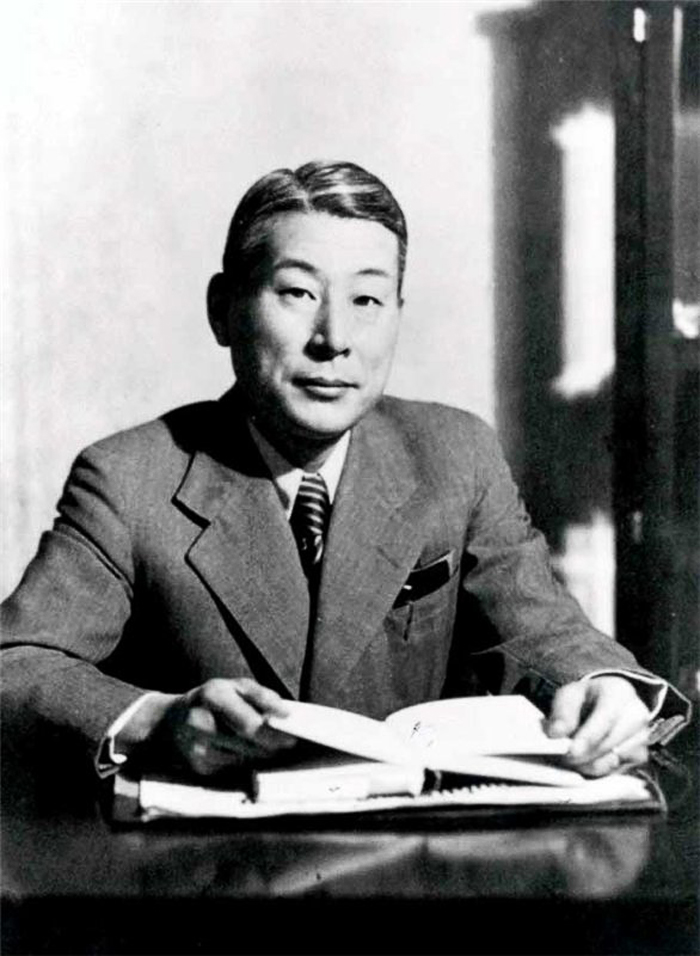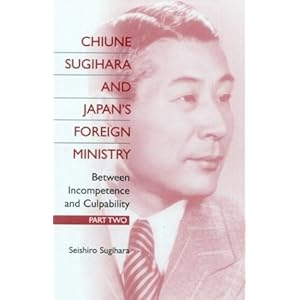As today is Rosh Hashanah, I’d like to write about a man whose actions had an impact on many people’s lives for the better.

Chiune Sugihara was a diplomat in the 1940’s whose bravery saved many Jewish families by giving them transit visas out of Lithuania as German troops were advancing. For me his selfless behavior in helping others in distress without seeking recognition even in later years, reflects many of the positive facets of neo-Confucianism in Japanese culture.
Sent as the vice consul to Lithuania, Sugihara found that hundreds of Jews stood outside of the consulate looking for exit visas to escape German armies that were soon to conquer the country. Ignoring direction from the Foreign Ministry Sugihara began systematically writing visas to anyone who came, allowing many to travel across the Soviet Union to Kobe, Japanese controlled Shanghai and other destinations willing to provide refuge for the desperate families.

With the annexation of Latvia by the Soviet Union and the inception of hostilities with Germany, Japan was forced to close its consulate and Sugihara prepared to leave his post. In perhaps 35 days including a final all night of work at the hotel and on the train as it was departing, Sugihara managed to hand out visas to thousands of people struggling to escape.
In all between 6,000 to 10,000 people are estimated to have been saved by his courageous actions.
After the war Sugihara was dismissed from the Foreign Service and worked in a variety of odd jobs selling light bulbs door to door in Fujisawa and working as a janitor. In the 50’s his fluency in Russian allowed him to live and work in the Soviet Union for over a decade in total obscurity. Located in 1968 by recipients of his visas, Sugihara was awarded the Righteous among Nations by the Government of Israel and recognized for his humanitarianism despite his own disinterest in perceiving himself as a hero.
For those interested in learning more about this story, PBS has an excellent site for a documentary it aired called “Sugihara, conspiracy of kindness”, and the Visas for Life Foundation works to actively identify survivors and descendents of Sugihara’s visas.
Monuments to Sugihara have been erected around the world including this one in LA’s Little Tokyo, but surprisingly none that I’m aware of in big Tokyo. In a typically Japanese paradox, the bureaucrats who run democratic Japan seem to be uncomfortable with a civil servant who didn’t follow orders while the Right Wing champion him as representative of the unheralded benevolence of the previous military dictatorship.

From the latter perspective Japan is usually thought to have been baited into attacking Pearl Harbor by the US despite its best intentions. However a professor coincidentally named Sugihara makes an intriguing postulate that points the finger at the Japanese Foreign Ministry as the real culprit. According to the professor’s thesis, the indifference to Sugihara in official Japan is but one point in the Ministry’s long campaign of disinformation aimed at the Japanese people to deflect responsibility for its own incompetence.
In actuality the Japanese government of that time had a relatively benign perspective of Jews and saw them as useful in developing its newly acquired colonies and influencing American policy favorably. One set of policy recommendations suggested inviting American Rabbis to visit Japan and highlighting the supposed similarities between stridently monotheistic Judaism and Shamanistic Shinto beliefs (!?). A greatly exaggerated retelling of these unimplemented recommendations can be found in a book called The Fugu Plan which appears to be short on facts and long on supposition.



